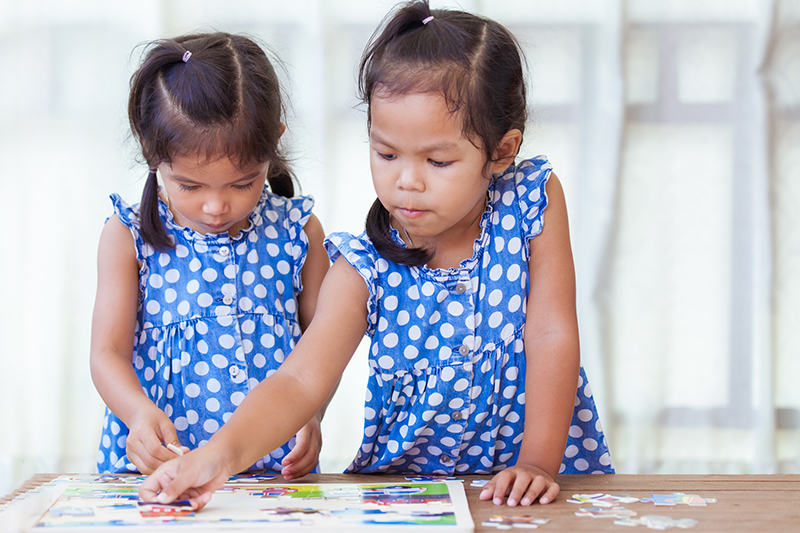Families For Life | School-Age Children at Play

DID YOU KNOW?
Playing with pasta pieces, especially macaroni, can be an excellent way to boost your child's acquisition of fine motor skills!
READ MORE

School is a great new adventure for most children, and play is one of the keys to working out how to get along with others and how to fit in. It’s also central to your child’s overall development and wellbeing. Here are some play ideas and games for kids in the early school years.
What to expect: school-age play and games
Your child will mature and develop a lot at 6-9 years. You can help this process just by playing with your child.
For example, play and games with simple rules can help your child get used to the more formal learning structures that she’ll experience at school. This kind of play also teaches your child about taking turns, which is important for making and keeping friends.
At this age, your child might develop new hobbies and interests through play. For example, your child might start to read more and really enjoy books and magazines about things that interest him – motorbikes, horses, bugs and more. These kinds of activities encourage your child to keep following his own interests and learn for himself.
Playing with your child can keep you close, especially as your child gets older and starts to enjoy being independent. By nine years, your child might have formed special friendships with one or two other children, probably of the same gender. These friends might be very important to your school-age child but your child still needs you, your support and love. Playing with your child – like kicking a footy in the backyard or cooking together – can help to strengthen your relationship.
Even though your child will probably enjoy the new adventure of school, she’ll still need your guidance and support to deal with any worries or concerns that come up. Playing with your child will help keep the lines of communication open.
When it comes to play and your school-age child, keep the focus on having a good time, rather than on learning. Let your child take the lead with play. Learning follows naturally when play is fun.
Structured play and self-directed play
Your child’s day is now more structured to fit around school. Sometimes parents worry that their child isn’t doing enough structured activities after school. In fact, self-directed, unstructured play – where children decide for themselves what they want to do and how to do it – is really valuable. That’s because it gives children time to:
let their thoughts and imaginations roam
explore ideas and think creatively
run around just for fun.
But if you’re looking for more structured play, activities where you get involved can be good. For example, playing board games together can help with maths skills and turn-taking, and reading together builds language skills and vocabulary. These activities are also great for strengthening your relationship with your child, because they give you the chance to spend time together.
Play ideas and games for kids
Your school-age child might enjoy some of these unstructured play activities:
Outdoor play: your child can ride bicycles (with trainer wheels and a helmet) and other wheeled toys, play in the garden or go to the playground with you and some friends.
Simple craft: activities like threading beads and string, making puppets with old socks or paper bags, or painting and making prints with sponges or toothbrushes can be fun for both boys and girls.
Dress-up games and pretend play: these let your child explore and express emotions and try out roles.
Musical play: activities like jumping and dancing to music, or making and playing simple homemade instruments, are good for expressing emotions and imagination.
One or two structured play activities are usually enough to keep your child busy. But if you’re thinking of getting your child involved in some more structured play, your child might enjoy:
playing school sports or outdoor games
doing puzzles and jigsaws or playing simple card games and board games
playing musical instruments
helping you around the house – for example, he might like to help prepare dinner or do some gardening with you.
At this age, children can enjoy some screen time. It’s OK to let your child play a video game and app or watch a favourite TV show or video for a short time. And if you can be involved in these activities it’s even better. But too much time in front of screens like tablets, phones, computers and televisions can lead to poorer language, social and physical development, and sleep problems.
Outdoor Play
Outdoor activities and sunlight can help in reducing myopia in your child. Outdoor play also helps your child to be active and learn about social interaction and cooperation when playing with others.
© raisingchildren.net.au, translated and adapted with permission
Explore more